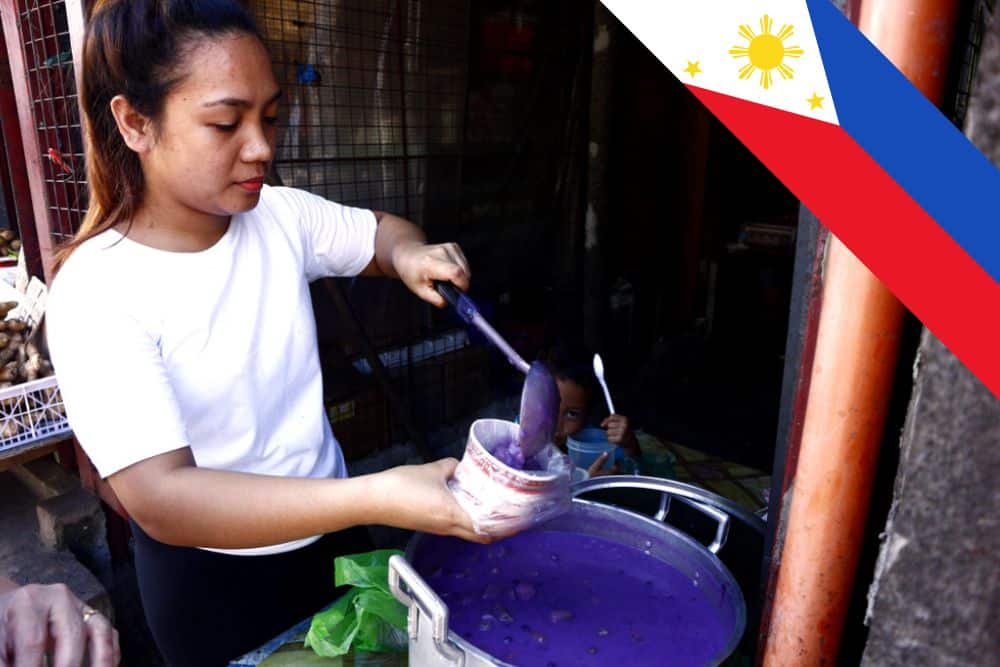As the sweltering summer heat sweeps across the Philippines, the Department of Health (DOH) has raised a red flag against a popular Filipino dessert, halo-halo.
Health Secretary Ted Herbosa recently cautioned the public about the potential health risks associated with consuming the beloved halo-halo during the scorching summer months.
Concerns Raised by Health Secretary Ted Herbosa
During a media forum called Kapihan sa Manila Bay, Health Secretary Ted Herbosa sounded the alarm about the safety of halo-halo consumption. He highlighted that this colourful concoction of shaved ice, various sweet ingredients, and milk could pose serious health risks. This is due to potential contamination.
Herbosa pointed out the ingredients are susceptible to contamination, particularly when exposed to summer heat. He stressed that the rising cases of diarrhoea reported recently could be linked to consuming contaminated halo-halo. Referring to incidents in Kidapawan City where residents fell ill after indulging in this summer delight, Herbosa emphasised the need for caution.
Risks of Contamination
The Health Secretary emphasised that bacteria thrive in sweet ingredients, especially when exposed to warm temperatures. This conducive environment for bacterial growth can lead to contamination, resulting in illnesses such as acute gastroenteritis. Herbosa warned that even seemingly innocent ingredients like ice and milk could harbour harmful pathogens if not handled and stored correctly.
Moreover, the preparation process of halo-halo itself poses risks if proper hygiene practices are not followed. From washing fruits to handling utensils, each step must be meticulously executed to prevent contamination. Herbosa stressed that ensuring the cleanliness of glasses, utensils, and the hands of those preparing the dessert is paramount to avoid foodborne illnesses.
Preventive Measures Advised
Herbosa outlined several preventive measures to mitigate the risks associated with halo-halo consumption. He stressed the importance of using clean ice and refrigerating milk at all times to prevent spoilage. Additionally, Herbosa emphasised the need for cleanliness in the preparation process, including ensuring that utensils and hands are thoroughly washed in order to avoid contamination.
Furthermore, Herbosa advised consumers to be vigilant when purchasing desserts from vendors, ensuring they adhere to proper hygiene standards. The DOH also recommends that individuals with weakened immune systems, such as children, pregnant women, and the elderly, exercise extra caution when consuming any other food that may pose a risk of contamination.
Wider Health Concerns
Beyond this advisory, Herbosa also cautioned against swimming in public pools during summer. He warned that unclean water can lead to skin diseases and gastrointestinal issues if accidentally ingested. This broader warning underscores the importance of maintaining hygiene and caution during the hot summer.
Additional Safety Tips
In addition to the specific warnings, the DOH recommends several general tips to stay safe during the summer:
- Stay hydrated: Drink plenty of water to prevent dehydration, especially during hot weather.
- Use sunscreen: Apply sunscreen with a high SPF to protect your skin from harmful UV rays.
- Seek shade: Limit exposure to direct sunlight, especially during peak hours of the day.
- Wear appropriate clothing: Opt for lightweight, breathable fabrics to stay cool and comfortable.
- Practice food safety: Properly store and handle food to prevent contamination and foodborne illnesses.
Conclusion
As Filipinos seek respite from the scorching summer heat, the DOH’s warning is a timely reminder to prioritise health and safety. While halo-halo remains a beloved summer treat, exercising caution and adhering to preventive measures to avoid potential health risks is essential. By staying vigilant and following hygiene guidelines, individuals can enjoy the season while safeguarding their well-being against summer’s lurking hazards.

